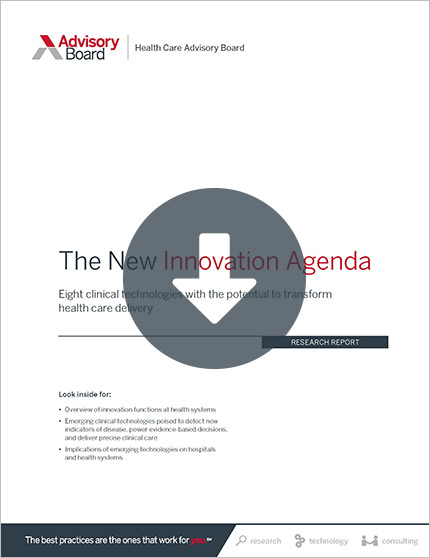Auto logout in seconds.
Continue Logout23andMe on Sunday announced it is offering a new report that purports to users their risk of developing Type 2 diabetes—but some experts say the tests may not be universally applicable, as 23andMe's genetic database is not representative of the entire U.S. population.
Get 10 lessons for success in the era of personalized medicine
23andMe launches test to screen for Type 2 diabetes risk
23andMe on Monday began offering patients reports on their likelihood of developing Type 2 diabetes. The new predisposition report comes at no additional cost to a majority of the company's existing and new customers who send saliva samples and pay $199 for their genetic screenings, according to STAT News.
23andMe developed the diabetes risk assessment to calculate consumers' so-called polygenic risk scores, which "can be thought of as a sort of genetic credit score," STAT News reports. The company built the assessment using FDA's guidelines for low-risk wellness products, which means it did not require FDA clearance.
The test analyzes more than 1,000 genetic variants to produce polygenic risk scores and then adjusts the risk score based on consumers' self-reported age and ethnicity. 23andMe created the algorithm to calculate consumers' polygenic risk scores using the genetic data of more than 2.5 million of 23andMe's current customers who consented to be a part of the company's research.
Who will benefit from 23andMe's new genetic test?
But experts say the new genetic tests may not be broadly applicable because the genetic database that 23andMe relies on to create the polygenic risk score is "overwhelming white," WIRED reports.
According to some experts, those risk scores are the most accurate when the data used to train algorithms involve people from the same ethnic groups. That means "23andMe's test is tuned to be most useful for skinny white people" and "isn't as accurate for folks of non-European ancestry," particularly black people, who are diagnosed with diabetes at a higher rate than white people, WIRED reports.
To address this issue, 23andMe has used Platt scaling, a machine learning trick that recalibrates the polygenic score created based on the European cohort for other ancestry groups, but experts say that doesn't make the scores any more useful for people of other ethnic backgrounds.
Ali Torkamani, a geneticist at the Scripps Research Translational Institute who studies polygenic risk scores and health outcomes, said, "It's a common shortcut, but it smashes down the level of risk you can convey to people." While Torkamani said Platt scaling shouldn't affect the scores for people who are Hispanic or east Asian, scores for African Americans won't be "relevant." In fact, Torkamani said 23andMe's tests would not be safe for black people to use to make clinical decisions about their health.
23andMe's efforts to diversify
Joyce Tung, 23andMe's vice president, in an opinion piece in STAT News discussed the limitations of genetic tests based on databases comprising data from mostly white people, but she said the company is trying to diversify its database. For instance, she noted 23andMe has received an NIH grant "to create a DNA sequence reference panel with genetic information from our African-American customers who gave their permission to make their data available to qualified researchers through the National Human Genome Research Institute."
However, the process of diversifying that database has been gradual, WIRED reports. "While I'm proud to help bring more diversity to 23andMe's database and the research industry more broadly, our health product currently has limited utility for non-European customers (which includes me and my family)," Yung wrote (Robbins, STAT News, 3/10; Molteni, WIRED, 3/10; 23andMe release, 3/10; Tung, STAT News, 3/6).
What providers should know about genetic testing and other new clinical innovations
Hospitals and health systems need to prepare for a new wave of clinical innovation, especially as leaders read about the promise of patient-generated data, artificial intelligence, and precision medicine. But which emerging innovations have the potential to truly transform health care delivery?
This research report explores the clinical technology pipeline to help health care leaders become more conversant in the major vectors of innovation, leading applications of new technologies, and the business implications for established providers.
Don't miss out on the latest Advisory Board insights
Create your free account to access 1 resource, including the latest research and webinars.
Want access without creating an account?
You have 1 free members-only resource remaining this month.
1 free members-only resources remaining
1 free members-only resources remaining
You've reached your limit of free insights
Become a member to access all of Advisory Board's resources, events, and experts
Never miss out on the latest innovative health care content tailored to you.
Benefits include:
You've reached your limit of free insights
Become a member to access all of Advisory Board's resources, events, and experts
Never miss out on the latest innovative health care content tailored to you.
Benefits include:
This content is available through your Curated Research partnership with Advisory Board. Click on ‘view this resource’ to read the full piece
Email ask@advisory.com to learn more
Click on ‘Become a Member’ to learn about the benefits of a Full-Access partnership with Advisory Board
Never miss out on the latest innovative health care content tailored to you.
Benefits Include:
This is for members only. Learn more.
Click on ‘Become a Member’ to learn about the benefits of a Full-Access partnership with Advisory Board
Never miss out on the latest innovative health care content tailored to you.

